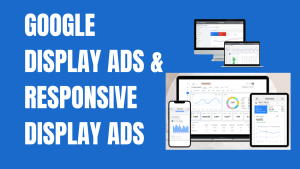Keyword research are incredibly important for Google Ads (formerly known as Google AdWords) as they form the foundation of your ad campaign.
Here’s why keywords are crucial:
👉 Relevance: Keywords determine when and where your ads appear. If you choose the right keywords, your ads are more likely to be shown to people who are actively searching for products or services like yours. This makes your ads highly relevant to potential customers.
👉 Ad Ranking: Google uses a combination of factors, including the quality of your keywords, to determine the ranking of your ads in search results. Keywords play a significant role in ad placement. High-quality, relevant keywords can help you achieve a higher ad position, potentially leading to more clicks and conversions.
👉 Cost-Per-Click (CPC): The cost of your Google Ads campaign is influenced by keyword competition. Highly competitive keywords tend to have a higher cost-per-click. Effective keyword selection can help you manage your budget more efficiently.
👉 Ad Copy and Landing Pages: Keywords guide the language and content of your ad copy and landing pages. The keywords you choose should align with the messaging on your website and in your ads to provide a consistent and satisfying user experience.
👉 Negative Keywords: Equally important is the identification of negative keywords—words you don’t want your ads to appear for. Negative keywords help you filter out irrelevant traffic, reducing ad spend and improving campaign performance.
The most important aspects of keyword research for Google Ads are as follows:
👉 Relevance: The keywords you choose should be highly relevant to your product or service. Think about what words or phrases potential customers would use to find your offerings.
👉 Search Volume: You want to target keywords with a reasonable search volume, so your ads have the potential to reach a significant audience. Google’s Keyword Planner can help you assess search volume.
👉 Competition: Assess the level of competition for your chosen keywords. High competition can mean higher costs, so consider a mix of competitive and less competitive keywords.
👉 Location and Language Targeting: Consider the geographic location and language of your target audience when selecting keywords.
👉 Cost-Per-Click (CPC): Understand the estimated CPC for your keywords. This helps you budget appropriately and assess the potential return on investment (ROI).
👉 Long-Tail Keywords: These are more specific and less competitive keywords that can often yield better results, as they target a more specific audience.
👉 Match Types: Familiarize yourself with match types (broad match, phrase match, exact match, and broad match modifier) and use them strategically to control when your ads show based on the search queries.
👉 Keyword Tools: Use keyword research tools like Google’s Keyword Planner, Ahrefs, SEMrush, or Moz to identify relevant keywords and gather data on search volume and competition.
👉 Regular Review: Keyword research isn’t a one-time task. Continuously monitor and adjust your keyword strategy based on performance and changes in your industry.
👉 Testing and Optimization: Run A/B tests with different sets of keywords to see which ones perform best and continually optimize your campaigns.
In summary, keywords are vital for the success of your Google Ads campaigns. Proper keyword research, selection, and management are essential for targeting the right audience, controlling costs, and maximizing your advertising ROI.




